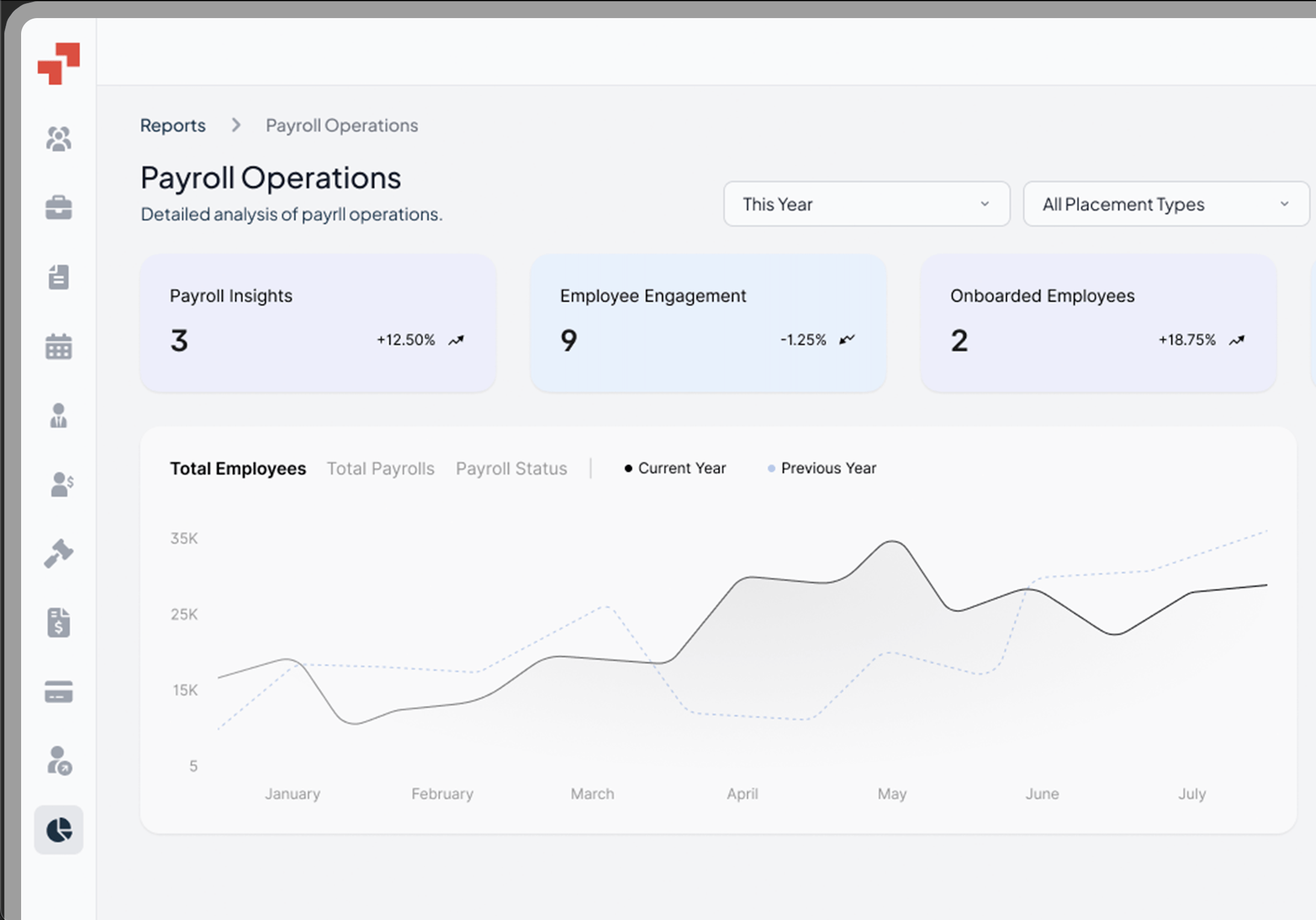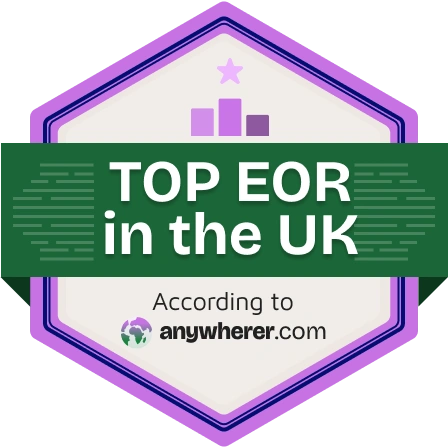TABLE OF CONTENTS
- How Sick Leave is Structured in the Netherlands?
- Sick Leave Eligibility in the Netherlands: Who Can Claim It?
- What’s the Maximum Sick Leave You Can Claim in the Netherlands?
- Long-Term Illness Leave in the Netherlands
- Reporting Sick Leave in the Netherlands: Here’s How to Do It Properly
- Sick While on Holiday? Here’s What You Need to Know
- Additional Leave Options in the Netherlands
- FAQ’s
Getting sick is part of life, but what happens when you need time off work to recover? Understanding your rights around sick leave in the Netherlands is vital for employees living and working there, especially during times of illness.
The Dutch system is one of the most employee-friendly globally, providing financial security during periods of illness. Because everyone gets sick at some point in their life, your time off should generally be paid. But exactly how does it work? Who decides on payment amounts, when can leave be taken and for how long?
Great questions! In this blog, we will address them all. Whether you are dealing with a common cold or recovering from a more serious illness, we have you covered – from eligibility and compensation issues to your rights and responsibilities as an employee; here is everything you need to know about sick leave in the Netherlands. Let’s dive in!
How Sick Leave is Structured in the Netherlands?
In the Netherlands, you must get at least 70% of your salary for up to 2 years if you are sick. However, many employers go beyond the legal minimum and pay 100% of your salary during the first year.
Besides, if your illness is related to maternity, pregnancy, or organ donation, you get 100% of your salary during your sick leave.
The system provides financial security during illness so you can focus on recovery. Worth noting that these rules are part of the broader labor laws for employee well-being.
Your employment contract or Collective Bargaining Agreement (CAO) typically outlines the specific details of your sick pay entitlement. Be sure to check these documents for clarity.
What Are Waiting Days?
Some employers in the Netherlands have “waiting days” (“loonvrije wachtdagen”), the first one or two days of sick leave where you don’t get paid.
Here’s to the bright side: Waiting days don’t apply if you fall ill within four weeks of your last sick leave. What’s more, waiting days reset every four weeks.
For example, if you’re sick on February 1st and then sick again on February 14th, you don’t have to wait the waiting days again. Your employer will pay you from the very first day of the second sick leave.
This is to prevent abuse of sick leave but not to punish employees for recurring illness. Check your employment contract or CAO to avoid surprises. Some companies don’t have waiting days at all.
Sick Leave Eligibility in the Netherlands: Who Can Claim It?
No matter what employment type they belong to, most employees in the Netherlands can claim sick pay leave. Here’s how it works across various employment types:
Permanent Contract
Under permanent contracts, employees have access to sick leave for up to two years, with at least 70% of wages paid as sick pay by their employers. This is a minimum of threshold may vary among employers, and in many instances, more generous compensation packages exist as part of employment terms.
If your illness extends beyond two years, however, benefits from UWV (Employee Insurance Agency) could become available as well.
Temporary Contract
Salary Calculator - Netherlands
What’s the Maximum Sick Leave You Can Claim in the Netherlands?
One of the best aspects of the Dutch sick leave law is how flexible it is compared to other countries – instead of giving employees 10-15 sick days at most, you can claim up to two years’ worth.
No one wants to have to take time off work due to illness or injury, but knowing you are protected for such an extended period can provide significant peace of mind. Should something arise that causes immediate income loss, protection can provide invaluable peace of mind.
After two years of illness, your employer no longer owes you wages; at that point, sickness benefits through UWV (Employee Insurance Agency), a government body responsible for administering social security benefits in the Netherlands, may become available – usually about 70% of your last earned salary but capped at an agreed-upon maximum amount.
Notably, even after two years have passed, the UWV plays an instrumental role in assisting employees transition out of long-term illness, whether through financial support or providing reintegration programs.
Long-Term Illness Leave in the Netherlands
When your illness lasts longer than a few days, don’t fret–you have protection in the form of long-term illness leave in the Netherlands.
Employees on permanent and temporary contracts are entitled to sick leave for up to two years with at least 70% of your wages continuing during this timeframe from their employer. So, your focus can remain solely on recovering without financial worries being an additional burden.
After Two Years of Sick Leave
If, after two years, you’re still unable to return to work, you may become eligible for disability benefits through UWV (Employee Insurance Agency). These will typically comprise a percentage of your last earned salary (typically around 70 percent), though be aware that benefits are subject to a maximum amount cap.
Reporting Sick Leave in the Netherlands: Here's How to Do It Properly
Below is a handy guide on how to report sick leaves properly:
- Notify your employer as soon as possible – ideally on the very first day – of any sick leaves you wish to take so that their processing runs as smoothly as possible.
- To report sick leave for work purposes, follow your employer’s designated reporting procedure, which could involve phone calls, emails, or internal systems.
- In some instances, it may also be necessary for you to visit a company doctor (“arboarts”) in order to have them verify your condition and advise as to your ability to work.
Sick While on Holiday? Here’s What You Need to Know
Are You Sick While on Holiday? Unfortunately, we’ve all experienced that awful feeling: planning for the ideal trip only to be struck with flu or an injury on vacation!
But there’s good news for employees in the Netherlands: should illness arise while away, sick leave can be claimed instead of using up vacation days. Here’s what’s needed in order to convert vacation days to sick days:
- Notify your employer immediately–ideally within 24 hours–of your illness while away on vacation, providing them with your address or telephone number where you can be reached during vacation.
- Seek medical assistance immediately at your vacation location before embarking on vacation and keep proof of this visit as proof of illness (i.e., doctor’s note or prescription).
- If your illness prevents you from traveling home, provide documentation.
- Once home, contact your employer and consult with their company doctor regarding how well your recovery has gone.
Additional Leave Options in the Netherlands
Understanding additional leave options in the Netherlands goes beyond sick leave! Maternity and paternity leave should also be taken into consideration since both can offer different forms of assistance depending on your circumstances and status in life. However, these vary between partners in terms of how they operate.
Related Newsletter Insight
Stay updated with the latest global hiring and compliance changes.
Wrapping It Up
Netherlands’ employee welfare system offers sick leave, holiday sickness leave, maternity, and paternity leave that truly supports an employee in wellness. From recovering from illness or welcoming a new family member into their lives to paid leave and benefits packages from both government and employers – everyone’s well taken care of here in Netherlands!
Understanding how the system operates is crucial in order to take full advantage of all available protections and rights. Compliance and understanding your rights are both key aspects of managing depends on sick leave, maternity leave, and beyond.
At Pamgro, we make it easy for businesses to stay compliant with Dutch labor laws so you can focus on growing your team while we handle the HR complexities.
If you’re unsure about your sick leave rights or need help understanding how these policies apply to your specific situation, Pamgro is here to help. Learn more about our Employer of Record services.
Still unsure about how sick leave works in the Netherlands. Our experts are here to guide you—absolutely free! Speak to an expert today and get clarity.
FAQ's
- How many sick days do you get in the Netherlands?
The Dutch sick leave system does not impose a maximum number of sick days upon its beneficiaries, instead providing for two years of paid sick leave (at least 70% of your salary from an employer nets for two years of paid leave) until sickness benefits from UWV (Employee Insurance Agency). If after two years you remain unable to work, you could qualify for sickness benefits through them as well.
2. How do I ask for sick leave in the Netherlands?
To request sick leave in the Netherlands, you generally need to inform your employer as soon as possible—typically on the first day of your illness. Depending on your workplace, this could be done through a phone call, email, or text message. Be sure to check your contract or the employee of handbook for specific instructions on how to report your absence.
If you’re unsure, it’s always a good idea to speak with your manager to clarify the procedure. Clear communication ensures that everything is handled smoothly.
3. Can I get sick leave for burnout in the Netherlands?
Yes, if you’re suffering from burnout in the Netherlands, you are entitled to sick leave. Burnout is considered a valid medical condition and, if confirmed by a doctor (or in some cases, a company doctor), it can be treated as sick leave. Burnouts are increasingly recognized as a legitimate reason for absenteeism, and employers are required to provide support and accommodations for employees going through this.
If burnout leads to extended sick leave, your employer is required to support your reintegration process, helping you return to work in a gradual and manageable way.
4. Can I Get Sick Leave for Burnout in the Netherlands?
Yes, if you are suffering from burnout in the Netherlands, you are eligible for sick leave. Burnout is considered a valid medical condition and, if verified by a physician (or, in certain instances, a company doctor), may qualify as sick leave. Burnouts have increasingly become recognized as a legitimate reason for absenteeism among workers, prompting employers to provide support and accommodations when required for employees experiencing it.
If burnout leads to extended sick leave, your employer should support and assist your return to work in a gradual yet manageable way.
5. Can I get sick leave if I am depressed in the Netherlands?
Yes, you can take sick leave if you’re experiencing depression. Depression is officially recognized as a medical condition in the Netherlands, and if a doctor diagnoses you, it can qualify you for sick leave. If the depression is chronic, it could lead to long-term absence from work or even eligibility for a disability pension from the UWV.
Employers are expected to accommodate employees dealing with mental health conditions, ensuring that they are supported throughout their recovery process.
6. Do I need a doctor’s note to call in sick to work in the Netherlands?
Under Dutch law, you do not need a doctor’s note to call in sick. Employee privacy is a strong principle in the Netherlands, and general practitioners (GPs) are not required to provide sick notes for employees. However, if your employer needs verification of your illness, they are required to arrange for you to see a company doctor (known as an arboarts or bedrijfsarts).
Hire the Best Talent, Anywhere


Mukul Dixit is a Growth Marketing Associate with 7+ years of experience creating impactful content in Innovative Tech, SaaS, and HR. A curious explorer at heart, he’s always on the lookout for new cultures to experience, fresh music to vibe, and innovative business ideas to dive. Passionate about entrepreneurship and digital marketing, Mukul brings a creative edge to everything he does.








